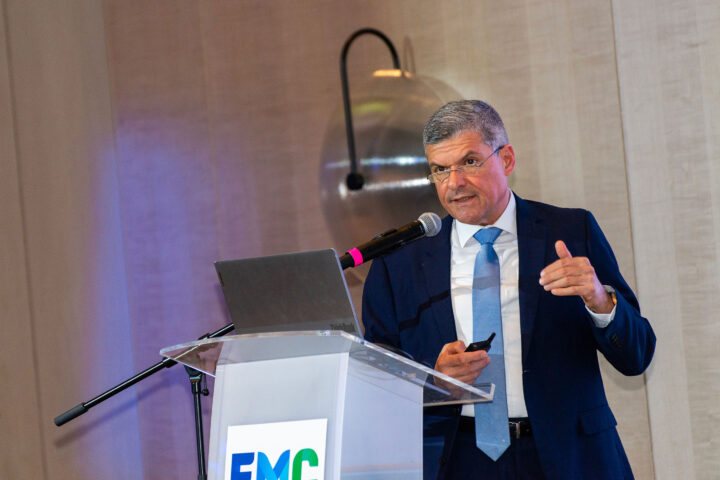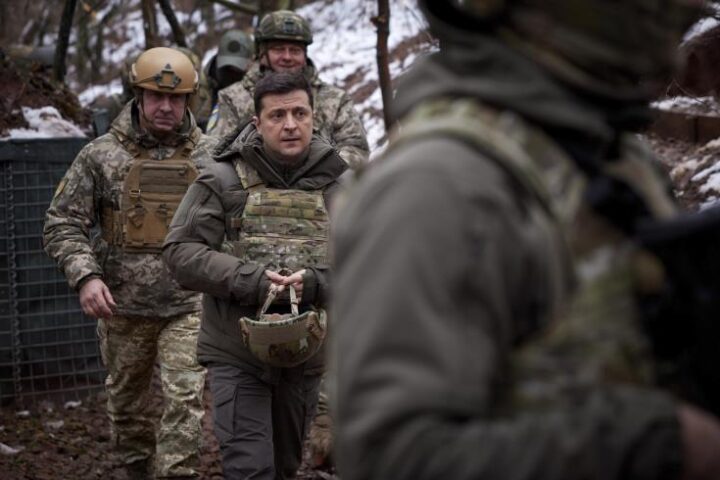The expected establishment of the East Med Gas Forum (EMGF), with its headquarters in Cairo, Egypt, has been formalized and signed.
The EMGF is now an official international regional organization, set up by Egypt, Greece, Cyprus, Israel, Palestinian Authorities and Jordan.
The decision to set up the organization, which was made in January 2019 and its inception, has clearly been supported by the increased instability in the region, the ongoing looming security conflict with Turkey, and the fledgeling international gas markets.
Officially the EMGF has been set up to be a regional cooperation platform to bring together gas producers, international operators, consumers, and transit countries.
The need for a regional gas market is clear to the signatories, but one of the major drivers for the project, European gas demand, however, is fledgeling.
The impact of COVID-19 related demand destruction, energy transition and increased insecurity in the East Med is holding back major new investments to bring this together.
The need to speed up is clear, but international oil companies, investment banks and possible consumers have been reluctant to proceed.
Originally, the main driver for the EMGF was to optimize the production and marketing of the offshore gas reserves of the East Med, cut overall investment needs by combining transport infrastructure and possibly integrate the regional economies.
The EMGF declares to be an open membership organization for any state in the East Med.
Other countries and organizations are also welcome as an observer, such as France, Italy and others.
The current set-up of the EMGF as an international governmental organization in the region is hailed by the signatories, as it gives momentum to establishing a body that aims to bolster cooperation and dialogue over natural gas.
The current approach is almost the same as formerly taken by the European Coal and Steel Community (ECSC), the precursor of the European Union.
Targets set are feasible, but to become a major success story, the EMGF should jump directly into a Phase 2 approach.
Looking at regional issues, the lack of support of a wide range of international organizations, such as NATO, EU and power players such as USA or Russia, the current energy market approach should be substituted by regional security coordination.
Not looking at the European approach, such as the West European Union, which failed, but at an East Med Security Forum, which will not only increase the impact of the EMGF, by supporting offshore security needed for gas exploration and production but also to push back third party claims on territory and natural reserves.
The latter could be seen as anti-Turkish but doesn’t need to be.
Looking at security in the area, all littoral states will reap the rewards of a stable energy and security environment, supporting economic integration and wealth.
By showing a possible path while keeping the door open for others to take part, a major hurdle of instability can be removed.
The EMGF approach is still a weak but potentially important start.
With teeth to put down demands and provide security to all interested parties, further steps can be taken.
Looking at the current crisis with Turkey, the EMGF has one major bone for the lone-wolf in Ankara.
East Med gas reserves’ natural market is Turkey.
The largest market in place with an ever-increasing thirst for energy.
By not being a split, weak organization but a strong new kid on the block, maybe the wolf will start listening.
Chess players
EMGF signatories should not ever rely on outside powers to intervene, none of them is really interested, except maybe other Mediterranean power players with strength and stamina.
The US, Brussels, Germany or Russia (China), are chess players, not backgammon champions.
The need for security cooperation is clear, as at the same time the East Mediterranean Gas Forum was officially set up, Turkey issued a new Navtex.
Ankara issued on Tuesday a new navigational telex (Navtex) reserving the sea area around the Greek island Lemnos.
According to Turkish officials, the NAVTEX was published due to alleged violations of the non-militarized status of the island set by the Treaty of Lausanne in 1923.
In the past weeks Turkish Navtex’s have been issued, all for Turkey naval manoeuvres in contested waters between Greece and Cyprus.
On Tuesday, the European Council also decided to postpone the special meeting planned for September 24 and 25 to discuss sanctions against Turkey just minutes after Turkey announced a new NAVTEX, violating Greece’s maritime space.
The EC meeting postponement has been ordered due to a positive COVID-19 test for Charles Michel, President of the European Council.
The new dates set for the EC meeting on Turkish sanctions is now planned for October 1 and 2.
Greek sources now claim that the cancellation of the meeting has been forced by Ankara’s NAVTEX, as Brussels would like to give time to the Turks to once again “de-escalate” tensions with Greece to avoid tensions.
It seems that Michel did not announce the postponement on Tuesday straight away but immediately after the teleconference he had with Turkish President Recep Tayyip Erdoğan.
The current NAVTEX approach by Turkey is an illegal one, as Turkey in 1936 allowed Greece to militarize the islands of Lemnos and Samothrace.
It was not a one-sided decision as the Turks were allowed to militarize the Dardanelles and Bosporus Straits.
The current Turkish argument about Lemnos is baseless.
Cyril Widdershoven is Global Head of Strategy, Berry Commodities Fund










